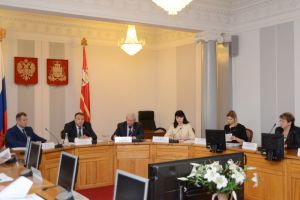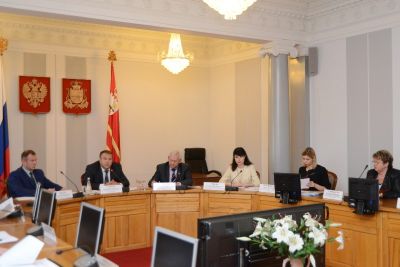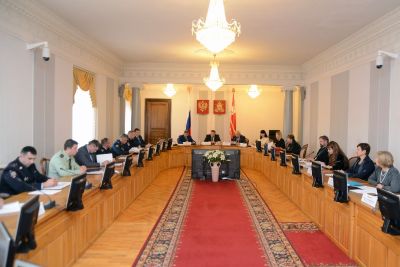The Meeting of the Anti-Drug Commission

There was a regular meeting of the regional Anti-Drug Commission, which was attended by the heads of regional executive authorities and law enforcement agencies.
The Committee discussed the issues of rehabilitation and re-socialization of people, admitting a non-medical use of drugs, as well as patronage of people who have completed rehabilitation programs.
The heads and representatives of the Healthcare and Social Development Departments of Smolensk region, of the regional offices of the Federal Drug Control Service and the Interior Ministry of Russia spoke at the meeting.
As the speakers noted, the task of identifying individuals prone to illegal drug use is performed by all healthcare institutions in close collaboration with the law enforcement agencies. Identification of children and adolescents with symptoms of drug use is carried out by narcologists involved in the work of the juvenile commissions. There is a regular exchange of information among the drug clinics and territorial authorities of the Russian Interior Ministry Directorate on adolescents on record because of the use of psychoactive substances.
Such collaboration gives quite positive results. So, for the last 6 months the incidence of primary drug abuse in the region has decreased by 35% compared with the same period last year. For the period of the 6 months this year 448 patients (or almost 22% of 2,069 people under the supervision) have been treated for drug abuse, for the 6 months in 2014 416 patients (or 21% of 1,961 people under supervision) received treatment. Thus, in the current period 8% more patients than in the same period of the previous year have received drug abuse treatment. It should also be noted that for the last six months the number of drug addicts, who are in remission from 6 months to more than two years, has increased by 1.9 times.
All healthcare institutions in the region are focused on preventing drug and alcohol abuse and promoting a healthy lifestyle among citizens. The Narcological Service of Smolensk region actively cooperates with public and religious organizations. In this regard, a special role is given to cooperation with the Russian Orthodox Church for the rehabilitation program at the outpatient rehabilitation department of the regional narcological clinic.
Particular attention is paid to active preventive work with young people. Psychiatrists-narcologists are in constant contact with the educational institutions. Each school is supervised by a narcologist, who gives "Health classes", holds workshops for teachers and social workers on identifying adolescents with bad habits and promoting healthy lifestyle.
The participants of the meeting stressed the need to intensify the systematic work on preventing drug addiction. Drug abuse among the population should be monitored by all services. The Regional Anti-Drug Commission points out that proactive steps have to be made to keep this social problem under special and constant control of the law enforcement agencies and all levels of government.



